Our heart is what keeps us going, it is the glue that…
Holistic Nutrition and Healthy Living
It is our pleasure, purpose, and goal to share Connection - Holistic Lifestyle - Alternative Healing Treatments - Living Happier with New Thought - from original sources.
GlobalCnet is a collection of links to the original thought, research, new ideas and found expert advice. We have assembled extensive information and facts to inspire YOU to further your education, skills, and desires on your specific subjects. When you click on a blue link, you arrive on a web site, do your research, and observe all the other articles available to you. Record what you need. Share what you learned
GlobalCnet connected you, to make better-informed decisions.
This is a teaching and informative Web Site again, presenting original authors, like Harvard University, MedNet, Unstuck.com, Readers Digest, Mental Health and documents from millions of Web Sites which were written, published and illustrated with specific content to expand your knowledge for personal growth, health and answers. All this WWW content was meant for your reading and answers,
GlobalCnet just connected you.
It is our hope that you use all information for further answerers, ideas for more exploration, and the wisdom to share discoveries with others. It is all about having the right fast or safe connections. Everything has already been discovered, be smart, and use proven methods and spin your solutions to fit your needs.
Any questions, comments or to just say hello...leave a webmail .
Quick links to information and new ideas. click here.
OK...you are now on GlobalCnet. You can use the SEARCH BAR to quickly find subject information, or you can visit all the pages. Your visit will award an organized starting point leading to answers to your challenge.......just do it. Type in a word and hit search.
- Michael J. Malette, PhD
Founder, Global Connection Network, Inc.
Holistic Nutrition Coach
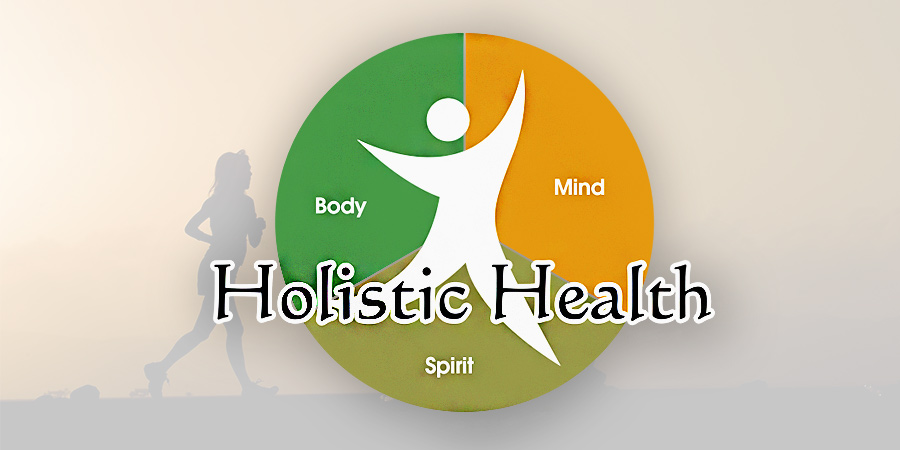
Thousands of studies, published in peer-reviewed medical journals, make it very clear...
You can slash your risk of cognitive decline, Alzheimer’s disease, and other dementias just by making simple lifestyle changes

Summer has come to an end, which means shorter days, longer nights,…

We live in the age of information overload. Having such abundant knowledge…
Milk has long been considered a healthy staple of the American diet.…
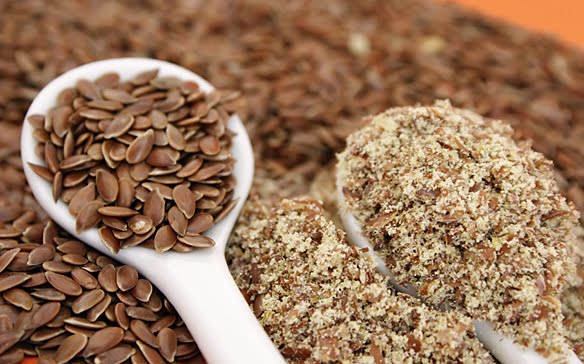
Vitamin D used to be discussed simply in the context of rickets,…
We all know that exercise is vital to our health. Why, then,…
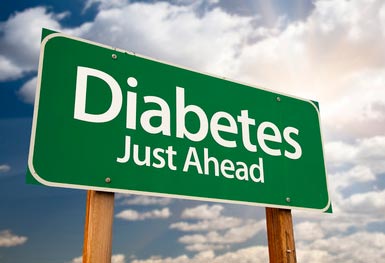
Monsanto continues to insist that glyphosate, the active ingredient in their best-selling…
It’s fair to say that turmeric has earned its title as a…

Manufacturers of artificial sweeteners would like us to think that…

The safety of pesticides and other agrochemicals is still the subject of…
Are You Suffering from Heavy Metal Toxicity?

How to Avoid the Toxicity of Everyday Products
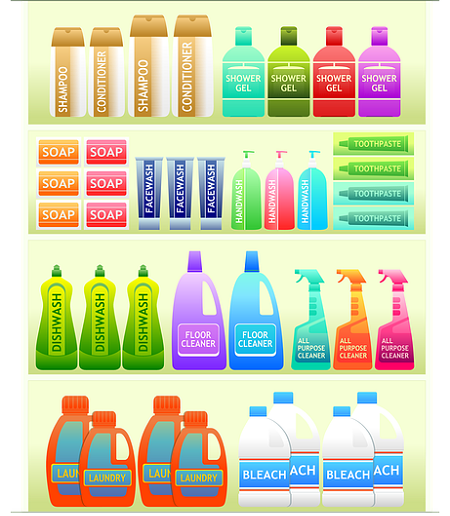
Flu Season Continues to Worsen (How to Protect Yourself)

Eat More Broccoli to Heal and Protect Your Digestion

Follow These Practices to Maximize the Benefits of Supplementation

Integrative medicine – the path to well-being and wellness

YOUR sinusitis has flared up yet again. Darn!
This is nothing new — over the years you have visited doctor after doctor who all responded by prescribing antihistamines (Claritin) and/or antibiotics (Amoxil), which brought temporary relief, but the symptoms returned.
Then they say it: “Well, it seems like you'll have to live with this,” and just so, you become a long-term, persistent (chronic) sinusitis sufferer.
Sounds familiar?
It happens far too often as the root cause of the sinusitis is overlooked, and only the short-term management of its symptoms — the easy part — has been addressed.
After a while you wonder, “Are there other ways to treat this sinusitis?
Could a more natural and holistic approach relieve me from this condition?”
So you do the smart thing.
You seek out the services of a well-trained and qualified naturopathic doctor (ND) or wellness coach.
Such a doctor or coach understands well how the body's systems, mind, body, emotions and spirit, all relate to and depend on each other; regards you as an individual to the extent that such a treatment approach is tailored to address your specific needs and goals of wellness; takes time to listen and takes a good case history — that is, an ND or coach gets to know you.
The ND or Coach may make a few suggestions:
• Eliminate all types of dairy from your meals for about six to eight weeks as dairy is very mucus-forming and will worsen the inflammation in the sinuses;
• Become aware of environments that make the sinusitis worsen and, where possible, remove yourself from them;
• Do some facial massage with oils (increases drainage);
• Be open to facial acupuncture (aids your body's ability to drain the sinuses and also stimulates the immune system);
• Use natural antibiotic preparations, where warranted.
You follow that advice and, in a month, you begin to suffer fewer attacks, you feel better.
Life is good, so good that you decide to walk each morning briskly as part of your new avowed exercise programme.
One morning you misstep, fracture your ankle and end up in the back of an ambulance en route to the accident and emergency department at the hospital.
In the hospital, depending on the bone(s) broken and the severity of the fracture, you will have your bones realigned and/or surgery with pins or screws to maintain the correct position during healing.
A boot or cast will be given to immobilise the broken bone(s) so as to allow recovery, and a physiotherapist will be recommended (post healing) for exercises to restrengthen unused muscles and ligaments.
A fractured ankle is an example of an acute medical condition requiring almost immediate attention, given the pain and immobility.
This is the total domain of the medical doctor (MD) — the treatment and remedying of acute conditions.
The sinusitis, an example of a chronic condition, is definitely the domain of the ND.
We each have our critical roles.
The above conditions are two non-life threatening, common ailments.
However, the period over which they are experienced and remedied seems to be a defining aspect of the approach of MDs and NDs.
Regrettably, health is regarded, in conventional medicine, as the lack of disease.
Additionally and far too often people lament that MDs seem to only get serious with patient health once they have developed a diagnosable illness, for example, once the results of the blood tests indicate a value outside of 'normal' range.
Then, the approach is to suppress or overwhelm the symptoms with medications/drugs or remove the offending tissue by cutting (surgery) or burning.
Let us be clear here; this is never to belittle the critical role that medications and surgery play when indeed indicated.
However, in comparison, naturopathic or holistic medicine focuses on wellness and does not view the absence of disease as a state of good health.
The naturopathic or holistic approach
A brief framework of this approach is outlined below:
• The patient is treated as a person, not a disease.
• A person naturally has ultimate inner healing powers.
• Whole-person healing – a critical characteristic is understanding how the mind, body, spirit, and emotions work together and how a person's well-being is affected.
• Treatment involves removing the root cause of the disease, not only timely quelling of symptoms but also creating a comprehensive treatment plan using a variety of natural, gentle, minimally invasive health-care practices.
• We understand and promote the undeniable healing power of meaningful words and deeds. Compassion, empathy, kindness, grace, gratitude, prayer/meditation, unconditional self-love, and caring are potent healers. A patient feeling cared for is quite willing to act on any advice given in order to see the desired improvements.
• Healing requires a team approach — patient and doctor on the journey together.
A growing number of people worldwide are frustrated with the conventional medical approach and, within themselves, feel that there must be other options less destructive to the human body and spirit and which recognise or assist the divine-given, inner healing capability of the body. Thankfully, there are.
Naturopathic becoming mainstream
Naturopathic or complementary healing, also known as alternative medicine, is fast becoming mainstream medicine simply because of, among other things, conventional or allopathic medicine's inability to provide a remedy for diseases which then lapse into persistent, long-term conditions and, over time, wear the body's systems down.
It thus seems reasonable that a blend of the two systems of medicine into a collaborative, integrative medical approach to patients' primary care would be the best service to offer.
It would undoubtedly foster and support personal wellness goals, thus reducing the enormous economic burden on the medical health system allowing it to function, for all, as the safety net for which it was always intended.
So really, it's not conventional or allopathic medicine versus naturopathic or complementary medicine. It's a blended, integrative medicine that affords the diseased person the best of care.
Namaste!
Dr Margaret Taylor ND is a naturopathic physician, wellness coach, advocate and promoter of all things natural and sustainable.
She is the chief health care professional at Caribbean Lotus Centre, and can be contacted at caribbeanlotuscentrebgi@gmail.com
How To Get Laser-Like Focus Through Nutrition
There is a link between the food we eat and our ability to concentrate.
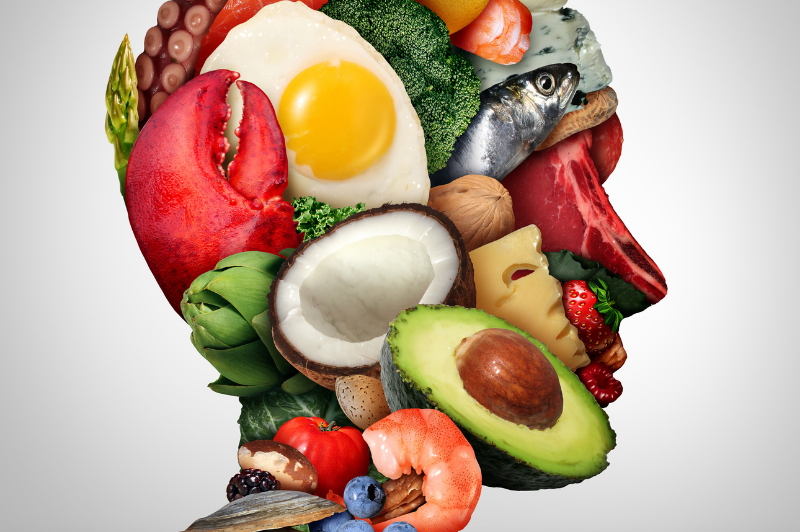
Feeling in a fog lately?
Has your mind not been as sharp as usual?
This can be a frustrating situation to find yourself in.
One moment, your brain is firing on all cylinders, next thing you know, it’s as if a dark cloud has rolled in, dulling your mind.
Recently I’ve found myself in such a situation.
I was looking for every possible explanation as to why my mind was not as sharp and clear as usual. Sometimes it can feel as if your focus will never return.
I thought maybe I wasn’t getting enough rest, so I slept in.
That did little to counter the effects of the fog that had rolled into my head. Next, I examined my motivation.
A lack of motivation is a common culprit when you’re struggling to focus.
If there is not an underlying driving force behind your actions, concentrating your attention is a difficult task.
Yet, my motivation was still present.
I felt the same levels of ambition and drive as before.
At this point, my irritation grew immensely.
I thought I would never land on the true reason for my worsening focus.
That’s when I turned to an area so crucial to focus, yet so often overlooked…food. Your nutrition plays an integral role in the ability of your brain to focus and hold concentration for an extended period of time.
The higher the quality of nutrition entering your body, the stronger your mind will become. A strong mind is one that focuses well, dispelling any dark clouds which seek to block your ability to concentrate.
How Food Influences Focus
For the most part, food ingestion is centered around its effects on the body.
As a lifelong athlete and weightlifter, this has been my main concern in terms of nutrition.
I saw food as a fuel source, available at my disposal to build strength within my body.
However, a strong body is no use to us without the combined addition of a strong mind.
A brain easily distracted and unable to concentrate will counteract most of the benefits a strong body will provide you on the field or court.
As athletes and performers, strength of mind should come prior to strength of body, or at least simultaneously.
If you allow yourself to neglect the brain, at one point or another, the strength you’ve obtained physically will only take you so far.
There are many ingredients to a mental health diet, from positive affirmations, meditation, exercise, and visualization.
But prior to all of this, the first area you need to give attention to is nutrition.
The benefits gained in the mind once you adopt a healthy diet are incredible, the main one being increased focus.
When we start to examine all the positive aspects of a healthy diet, it becomes evident why it has such a profound impact on your ability to focus.
Most of the research out connecting diet to focus centers around individuals with ADHD. In an article on healthline.com, Freydis Hjalmarsdottir highlights the main links found between certain foods and levels of focus.
The main takeaway was children with ADHD were not eating a well-balanced diet.
They had nutrient deficiencies which led researchers to further examine the role certain nutrients played in the children’s ability to focus.
“If you allow yourself to neglect the brain, at one point or another, the strength you’ve obtained physically will only take you so far.”
Amino Acids
When it comes to building neurotransmitters, the signaling pathways in your brain, amino acids play an integral role. There are three amino acids, in particular, used to make three valuable neurotransmitters, which have been shown to be lacking in children with ADHD.
These include phenylalanine, tyrosine, and tryptophan, which are important in the production of dopamine, serotonin, and norepinephrine.
These three neurotransmitters are known to play an important role in the regulation of mood. Individuals with anxiety and depression are often seen to have an imbalance in these three.
Since an imbalance in these three neurotransmitters increases your risk of anxiety and depression, it makes sense why they would impact focus.
As depressive and anxious thoughts fill your mind, it becomes more difficult to retain focus. Even a small amount of anxiety or depression will result in a worsened attention span.
Essential Vitamins and Minerals
Obtaining an adequate amount of vitamins and minerals from your diet can be difficult.
Especially if you are not paying attention to what you’re eating.
A deficiency in certain vitamins and minerals is a key factor in your ability to focus.
Low levels of zinc, magnesium, calcium, and phosphorus have been repeatedly shown in children with ADHD.
Examining deeper, multiple studies have confirmed the benefits of zinc supplements on ADHD symptoms.
Iron also has an impact on attention.
Several studies have revealed similar benefits as zinc supplementation when adding additional iron to the diet of those with ADHD.
While more research is still needed, the studies reveal a link between vitamins and minerals and one’s ability to focus.
Omega-3 Fatty Acids
Omega-3 fatty acids are an important piece to a well-functioning brain.
So much so that in general, children with ADHD have lower levels of omega-3’s than children without ADHD.
This information reveals an incredible correlation between these fatty acids and attention.
Further research shows that not only does focus become impaired with a lack of omega-3’s, but learning and behavioral problems become more prevalent the lower the levels.
In experimentation, studies have shown an improvement in ADHD symptoms with regular supplementation of omega-3 fatty acids.
Benefits of Improved Focus
We know there is a link between nutrition and focus.
The nutrients discussed above highlight some interesting correlations between the two.
There has also been research showing that the elimination of preservatives, sweeteners, food additives and allergenic foods improves symptoms of ADHD.
Understanding the impact nutrition has on your ability to focus, you now need to question why.
Why is it important for you to pay attention to your diet in order to reap the benefits of improved focus?
Well, as an athlete or performer, or someone seeking success in their life, focus is crucial.
Gaining the ability to center your attention on what you want is vital in working towards a goal.
To highlight the importance of improving your focus, here are four benefits you can expect once you begin working on increasing this skill.
Benefit #1: Reduced Stress
Now, who wouldn’t want less stress in their lives?
Feeling stressed, worried, anxious, or whatever you want to call it weighs heavily on the mind and reduces your chances of attaining success.
But how does focus play into stress reduction?
and worry come about due to your continual thinking about the future.
Even if you’re stressing over something in the past, the reason for your concern comes from the fear of negative consequences expressing themselves in the future.
One reason focus reduces stress is the ability it provides you to stay in the moment.
When you are focused on a task, I mean completely focused, that is where all your attention is being directed.
This allows no room for anxious and worrisome thoughts to enter your mind.
Another way focus reduces stress is the power it provides to get work done. Whether it’s training, school work, or work for your job, being focused will increase your productivity.
“Stress and worry come about due to your continual thinking about the future. Even if you’re stressing over something in the past, the reason for your concern comes from the fear of negative consequences expressing themselves in the future.”
Benefit #2: Increased Work Quality
Who do you think will churn out higher quality work, someone with poor focus, or someone who can place all their attention on one task?
The obvious answer is the latter of the two.
When you have the capability to focus completely on whatever it is you’re doing, the effectiveness of your work will improve.
For athletes, this means higher quality production in training and greater output during competition. For students, this means learning more and receiving higher grades. For professionals, this means producing work that you are proud of.
As your mind bounces from one idea to another, never settling on one subject, producing quality work becomes very difficult.
But once you gain control over your attention, all of a sudden you see a spike in production.
Benefit #3: Better Time Management
Once you begin to improve your focus, your ability to manage the time given to you each day will get better as well.
This mainly comes from the fact that distractions will not play such a role in your life.
When we have poor concentration, it’s easy to grow distracted.
When you’re working, and constantly having your attention bounce from one thing to another, you quickly realize how much time you’re wasting.
Learning to hold your attention keeps you free from distractions. Leading to you utilizing time in a more efficient and effective manner.
Benefit #4: Improved Mindfulness
Mindfulness means being fully present in the moment.
Sounds a lot like focus doesn’t it?
The greater focus you develop, the more you’ll be able to center your attention in the current moment.
Being mindful, especially during a competition, leads to greater production, reduces anxiety, and protects yourself from negative thinking.
When you start cultivating better focus, it will become easier to become mindful.
As your attention becomes fixed on something, you will steadily shift your awareness into a more mindful state.
Nutrition Tips to Boost Your Focus
Understanding how nutrition impacts focus and the benefits increased focus provides, how can you leverage nutrition to boost your ability to concentrate?
There are four steps I am going to outline in the rest of this article. But one point I would like to make first is consistency.
If you wish to reap the rewards of improved focus through a tailored approach to nutrition, you cannot simply try a new diet one day and then give up.
To see results, consistency is going to be crucial. Give yourself a time period of consistency and you will begin to see results appear in your life.
Step #1: Map Out Your Diet
To start, you need to map out what you’re going to eat on a daily basis.
The last thing you want to do, if your aim is to use nutrition in a meaningful way, is to be thinking about what to eat on a daily basis.
If each day you wake up and ask yourself, “What should I eat today?”
it will be difficult to see the result you’re hoping for.
For one, this will be exhausting.
The energy required to pay constant attention to what you’re consuming will wear you down over time.
Also, this leaves too much room for error.
Without a clear picture of what you’re going to eat, you open the door for cravings and weaknesses, derailing your progress.
So, you want to start off by mapping out what you’re going to eat each day.
A great way to do this is by planning out your meals at the beginning of each week.
That way, you don’t have to eat the same thing for dinner, let’s say, but you have made a plan for what you want to eat.
When you’re mapping out your diet, you need to be sure to include foods that will help boost your focus.
READY TO MASTER YOUR MIND?
Reach peak performance through mental performance coaching!
Step #2: Include the Right Food
What should you include in your diet in order to maximize focus?
Well, it will depend on what you enjoy eating since there’s no point outlining a meal plan you know you’re honestly not going to follow.
Luckily, it’s not necessarily the meals that matter, but the food selection within the meals. When crafting your diet, be sure to include some of the foods listed below, as they’ve been proven to improve focus.
- Blueberries
- Green Tea
- Avocados
- Leafy Green Vegetables
- Fatty Fish (high in omega-3’s)
- Water
- Dark Chocolate
- Flax Seeds
- Nuts
Step #3: Make Your Eating Habitual & Routine
Now that you have your diet mapped out, including some foods proven to boost memory, it’s now time to turn to the more psychological side of the equation.
When it comes to eating, the best way to ensure your diet will stay on point is to make eating a habit. What do I mean by making eating a habit?
Well, it’s all about utilizing routine.
If you are aiming to adhere to your new diet, targeted to boost focus, it must become part of your routine.
Aim to eat at the same time every day.
This will keep you from skipping meals, and over time, your mind and body will become accustomed to eating the right foods at the right times.
Step #4: Allow Yourself Some Breaks
In contrast to the previous step, you do not want to become a bully towards yourself.
Yes, it is vital to make eating part of your routine. But we are all not striving to become rigid, serving only our diets.
Allow some opportunities for you to take a break from your new diet. Schedule a cheat meal, allow Friday nights to be filled with foods you enjoy.
The key to making any diet last is flexibility.
I truly believe, allowing yourself opportunities to break from the daily grind of sticking to your meal plan is a crucial piece of lasting success,
as long as your meal plan is tailored to helping you improve focus.
“The key to making any diet last is flexibility. I truly believe, allowing yourself opportunities to break from the daily grind of sticking to your meal plan is a crucial piece of lasting success.”
Final Thoughts
There is a link between the food we eat and our ability to concentrate.
If you are currently struggling with focus, a great place to start is by examining your diet.
What are your eating habits?
Do you have any of the foods listed in the article included in your meal plan?
Maybe you’ve never even thought about mapping out what you eat.
I encourage you to look at your diet through the eyes of a researcher and truly seek to understand how what you’re eating is impacting your focus.
How does your focus, or lack thereof, impact your performance?
Do you eat any of the foods shown to improve focus?
Let me know in your comment on GlobalCnet. You matter, care for yourself.
If you are interested in improving your performance and reaching your full potential, you can learn more about how mental performance coaching can guide you towards peak performance here.
8 Ways To Improve Your Mental Performance In The Morning
How you shape your morning dictates how the rest of your day will go
If you want greatness every day you need to start every day in a great way.
That’s when your mentality will be boosted and your habits cemented.
From there behavior over time will become the best it can be.
Because how you use your early morning time dictates how you can face the rest of your day.
Here are 8 ways in which you can improve your mental performance in the morning time.
And all of these habits will then improve your daily routine too:
1. Drinking water early in the morning flushes out toxins and energizes your system.
By drinking water early in the morning you are also helping your cognitive performance.
Your brain is becoming immediately hydrated and when it is it can maximize its performance levels. And the great thing is it also helps when people are trying to lose weight.
Also by drinking water early on in the day your kidneys are flushing out wastewater from your body.
2. Meditating early in the morning steers your mind into being in control of your actions throughout the day.
And although you may feel like jumping out of bed in the morning and getting stuck into the day by immediately slowing down and centering your mind you are making sure that your morning energy is balanced and your decision-making is clear and rational.
Once you do that every day over a long period of time not only is your mind centered and calm as you enter into the day but your brain is re-wired to deal with greater pressures and challenges as they are unveiled to you.
3. Short exercises early on will sharpen your brain and trigger your potential.
And once you do them you feel as if you’ve begun to work your body for the day.
Because every time you move your body in life you’re investing into your future.
In reality, we are built to move yet too many people are sedentary and that leads to further problems down the line like obesity and becoming lazy.
By exercising your upper body you’re training your brain as it’s more difficult to strengthen that part of your physique.
By doing it in the morning time before you eat you’re making it more challenging for your body and that’s when your brain and body become more economical together.
4. Although many people drink coffee and it will stimulate your brain by avoiding it and learning to naturally control your brain you’re directing your behavior over the longer term.
Because the day that coffee runs out your brain can become confused.
Although coffee is a fantastic trigger to get you going in the morning by taking it daily you are using it as a crutch to dictate your daily thinking.
5. Your body needs to stretch in the morning and when doing yoga at this time it will lengthen and strengthen your body.
And that’s when it’s more efficient for you now and in the longer term also.
And once your body is long, strong, and supple it works the cerebellum part of the brain which is a large and ancient part.
Although it looks after gross movement in your body it also allows for your body to speak properly.
And how you speak matters.
Because you will be judged on how you present your words to people and this builds many more neural connections too which benefits your brain’s overall mental performance.
6. By reading early on your feeding your brain with new knowledge that it will focus on throughout the day.
Because what you focus on you’ll see.
That’s where opportunities in your life present themselves.
Reading gives you the opportunity to visualize and by visualizing you are seeing what you want out of life.
Of course, other things will happen around you but you’ll be able to use your energy more efficiently to notice the most important things that matter to you once you feed your brain with words that matter to you.
7. Avoiding news in the morning time will automatically avoid a negative start to the day.
Because unfortunately, news stations are there to try to shock people and play off their fears.
That’s how they get and keep attention.
And if you fill up your subconscious with constant early morning negativity you are creating a skewed and limited reality of what you perceive is capable in your world.
8. By keeping your technology away from you before all your morning routine is complete you’ll take control over your usage of technology every day.
And your brain will recognize what stimulates you every morning are the habits that you create and are in control of.
So by starting off strong and demanding things from yourself you`re setting the trend to a more successful day ahead and dictating what you`ll bring into your psyche.











